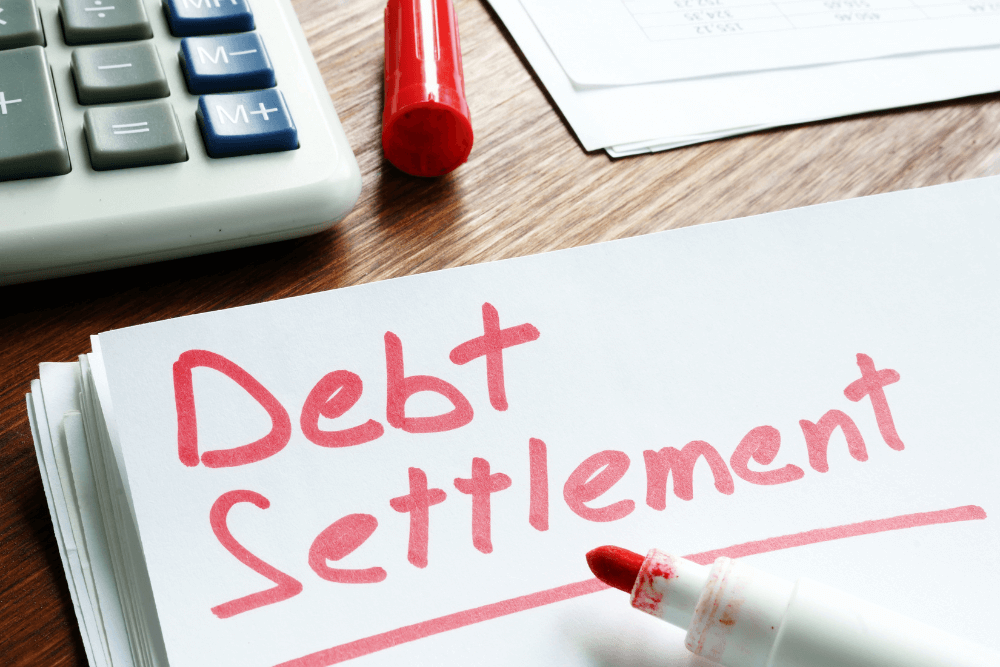Is Debt Settlement the Best Choice for Getting Out of Debt?
Key Insights
Depending on your financial situation, one can decide whether debt settlement is the best option to pay off debt. Debt settlement might be a good choice if you are having trouble making payments on a sizable amount of unsecured debt.
Many people seek practical strategies to manage their financial concerns because debt can feel overwhelming. Debt settlement is a commonly used strategy for reducing stress. However, is debt settlement the most effective option for paying off debt? Let’s find out here.
We will discuss debt settlement in this article, including what it is, how it operates, its benefits and drawbacks, and whether it is the best course of action for your financial circumstances.
For more insights, read the blog “How to Get Out of Debt: Know the 6 Best Ways“
What is Debt Settlement? An overview
The process of negotiating with creditors for a lower total amount of debt repayment is known as debt settlement. It typically necessitates working with debt settlement companies skilled at negotiating lower payments on the debtor’s behalf. By agreeing to make a lump payment that is less than the total amount owed, the parties hope to settle. Hence, that will allow the debtor to pay off their debt more quickly.

How does Debt Settlement Work?
Choosing to pursue debt settlement usually results in you no longer paying payments on your obligations. As an alternative, you gradually transfer funds into a specific account. After you have saved up enough money, the debt settlement business will bargain with your creditors to get your debts settled for less.
Depending on how much debt there is and how responsive the creditors are, this procedure may take several months to many years.
What are the Advantages of Debt Settlement?
- Reduced Debt Amount: The opportunity to pay less than what you owe is one of the debt settlement’s most important benefits. Successful negotiations can result in large savings.
- Faster Resolution: Debt settlement occasionally provides a quicker route to debt freedom when compared to alternative debt relief choices, like bankruptcy.
- Preventing Bankruptcy: The last resort for many people. One option that might help people escape the long-term effects of bankruptcy is debt settlement.
- Professional Support: Clients who use debt settlement services can benefit from the experience and expertise of professionals adept at settling disputes with creditors.
Is Debt Settlement the best option for you? Explore the details and decide!
What are the Drawbacks of Debt Settlement?
- Fees and Costs: The fees that debt settlement organizations frequently impose for their services can increase the total amount you pay. Before you sign any agreements, be sure you comprehend the fee schedule.
- Tax Repercussions: You might have to pay taxes on the amount of debt forgiven if your debts are settled for less than what you owe.
- Effect on Credit Score: Debt settlement may hurt your credit score. If you stop making payments, your credit can suffer, and your accounts might be recorded as “settled” rather than “paid in full”. Your prospects for credit in the future may be impacted by these incidents.
- Not Guaranteed: The approval of a settlement by creditors is not certain. You can still owe the original amount and have less money available to pay it off, if discussions fail.
Is Debt Settlement the Best Option for You?
The pros and cons need to be considered when settling debt. Examine further choices for debt relief, such as debt management plans, credit counseling, or even bankruptcy. Every choice has benefits and drawbacks, and what suits one individual might not be appropriate for another.
Takeaway
For some people trying to get out of debt, debt settlement may be a useful tactic, but there are hazards involved. Before deciding, it is essential to comprehend the costs, consequences, and possible outcomes.

